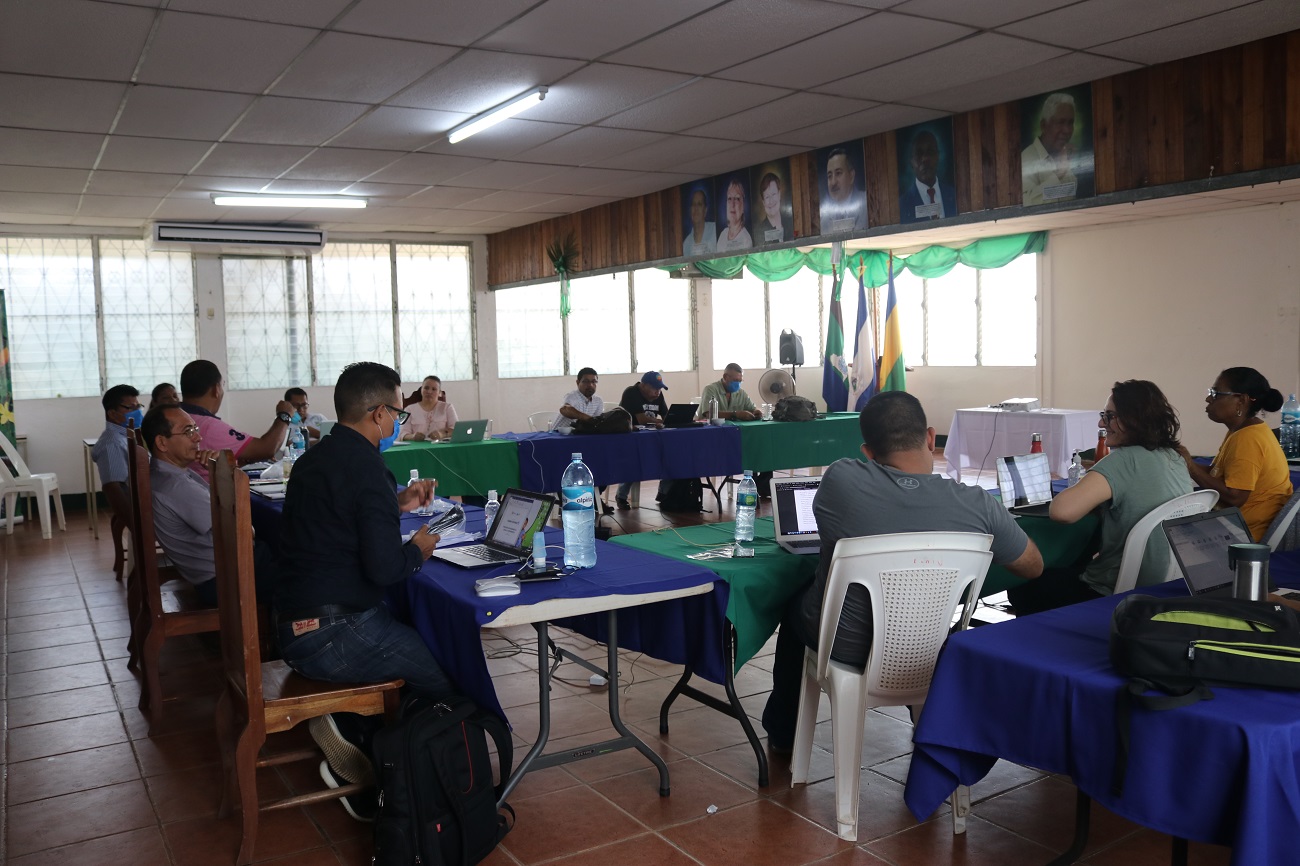
Directors and coordinations of different states of the university.
Dialogue of knowledge for interculturality
Four days of reflections in the search for the consolidation of the Community University Model are carried out in URACCAN Bilwi campus, an activity that begins from the II Doctoral Workshop on International Curriculum Adequacy of the Doctoral Program in Intercultural Studies, Workshop of the Intercultural Community Accompaniment Model and the Finiquito Workshop of Yamni Iwanka, implemented under the NORHED Project: RUIICAY-HIOA, linking program in intercultural communication , driven by Rectory and which brings together directions and coordinations from different states of the university.
The session began yesterday, Saturday, and runs until this Tuesday, May 12 with the main purpose of "Advancing the consolidation of the Intercultural Community University Model from the establishment in collective of the leading guides of the work and institutional strengthening in education and research with quality and relevance", as well as "establishing a framework for institutional capacity building in intercultural community education and research based on the definition of the main elements of an International Programme in Intercultural Studies, in accordance with a perspective of Good Living (Yamni Iwanka) and model of intercultural accompaniment".
In this sense, Master Yuri Zapata, vice-chancellor general of the URACCAN, said that the beginning of this workshop was the process of socialization to know the current structure of the three documents that are made in collectivity, "for the purpose of further deepening its articulation, chapter, by chapter, it was used to clarify some perceptions about each of the components".
Dialogues of knowledge, feelings and knowledge
The collective discussion and dialogue of knowledge raised since the realization of these three documents "Intercultural Community Accompaniment Model, Yamni Iwanka and International Curriculum Adequacy of the Doctoral Program in Intercultural Studies", focused on the university's own knowledge.Faced with this, Zapata explained that the URACCAN defines some essential elements that involve peoples "what we are understanding for Good Living, Good Living from the practice of peoples in their generic philosophical framework, but, what are those particular practices of the peoples".
Another theme addressed in the workshop is intercultural education, focused on community accompaniment, from the right philosophy and where it is intended to go as a higher education institution."Talk about ecology, the environmental systems that we have, what this also means for peoples, what is the cultural, productive, economic perspective of ecosystems for peoples, what is the significance of the earth seen from each of the worldviews spiritualities of indigenous peoples, Afro-descendants, half-breeds," Zapata said.
Collective construction processes
At the end of the first day of the workshop, one of the agreements was that 3 different teams would be worked on this Sunday to delve into the chapters of the documents they are building, "what has already been written will be complemented, start by group with each of the documents (...) that each one encloses the philosophical, epistemic framework of URACCAN, then, with each of the experts that is being held, is being contributed to them," concluded the Vice-Chancellor-General.
- Log in to post comments
- 54 views
